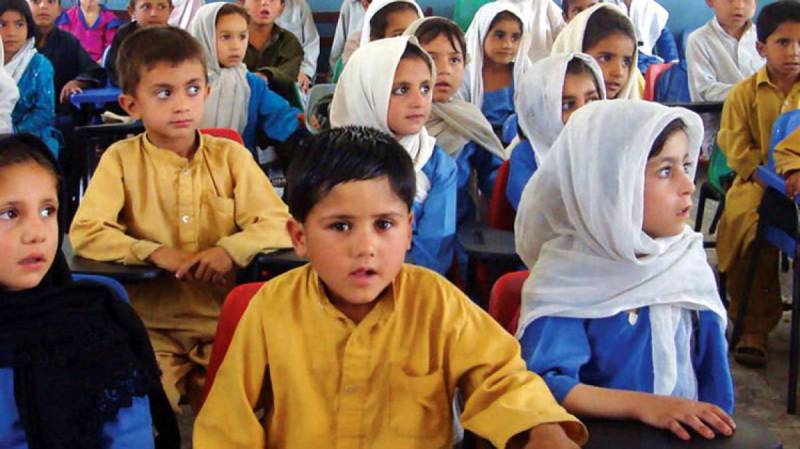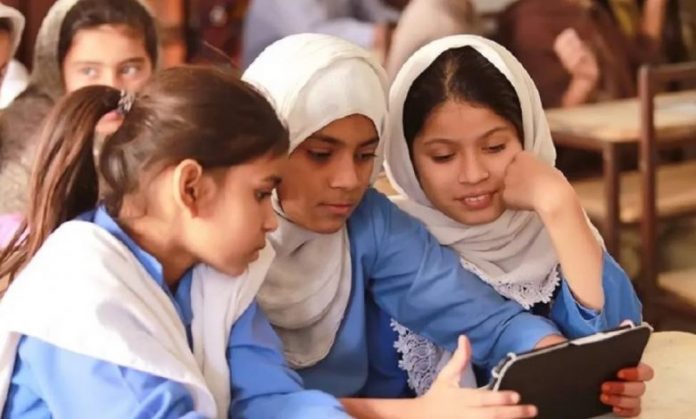|
Getting your Trinity Audio player ready...
|
The Khyber-Pakhtunkhwa cabinet, under the leadership of Chief Minister Ali Amin Gandapur, has unanimously endorsed a groundbreaking initiative to provide complimentary, high-quality education to exceptionally gifted students enrolled in public schools spanning grades seven through twelve, ensuring their access to esteemed educational institutions within the province.
During its recent session chaired by Chief Minister Ali Amin Gandapur, the cabinet convened to deliberate on crucial matters pertaining to energy generation, education enhancement, food security, wheat procurement, and sustainable development.
In a significant move, the cabinet granted approval for the rehabilitation and refurbishment of the 17-megawatt (MW) Ranolia Hydropower Project in Lower Kohistan, previously sanctioned by the Provincial Development Working Party (PDWP) for Rs8.1 billion. This project, now designated as a non-ADP scheme, will receive financial backing from the Asian Development Bank (ADB). Additionally, the cabinet greenlit the acquisition of 327 kanal land for the 88MW Gabral Kalam Hydropower project in District Swat, which is financed by the World Bank.
Upon its operationalization, the Gabral Kalam Hydropower project is poised to yield an annual revenue surpassing Rs 7.4 billion for the province. Furthermore, the cabinet sanctioned additional compensation for land and properties, based on an independent valuation study, aimed at facilitating the implementation of the 300MW Balakot Hydropower project on Kunhar River Manshera.
Read Also: Ali Amin Gandapur’s Agenda for Khyber Pakhtunkhwa: Prioritizing Langar Khana Initiatives
In an effort to streamline administrative processes, the cabinet resolved to transition from manual registration books to automated motor vehicle registration smart cards, a decision stemming from a previous memorandum of understanding (MOU) between the Excise and Taxation Department and the National Security Printing Company (NSPC) of the federal government.
The cabinet was apprised that the cost of these smart cards would be Rs574, significantly lower than the rates in Islamabad, Punjab, and Sindh. Additionally, the cabinet allocated Rs500 million from the defunct FATA Development Authority, along with an accumulated markup of Rs43 million, for expediting the implementation of development projects in the merged districts.
Moreover, the cabinet endorsed the allocation of funds for the construction of the Judicial Complex at Panah Kotm Upper Dir and the enactment of Khyber Pakhtunkhwa Registration of Godown Rules 2022, as mandated by the KP Godown Registration Act 2021, aimed at regulating and registering warehouses to ensure a robust system for the stable supply and availability of goods.
Reaffirming its commitment to educational excellence, the cabinet reapproved the provision of complimentary and high-quality education for talented students in grades seven through twelve, with plans to double both the monthly scholarship amount and the number of deserving beneficiaries in the upcoming academic year. Additionally, the cabinet underscored the importance of guaranteeing universal access to education, directing a comparative study on the quality and cost-effectiveness of textbooks published by the government and private sectors, while also authorizing the utilization of previous editions of textbooks for the welfare of the province’s populace.

